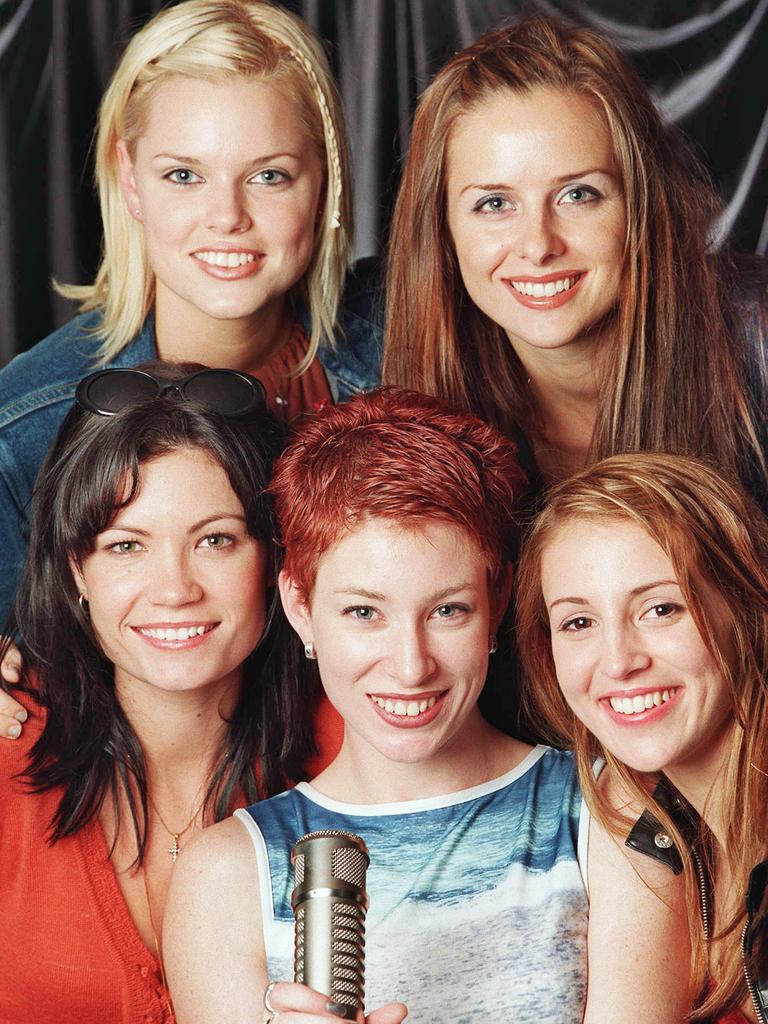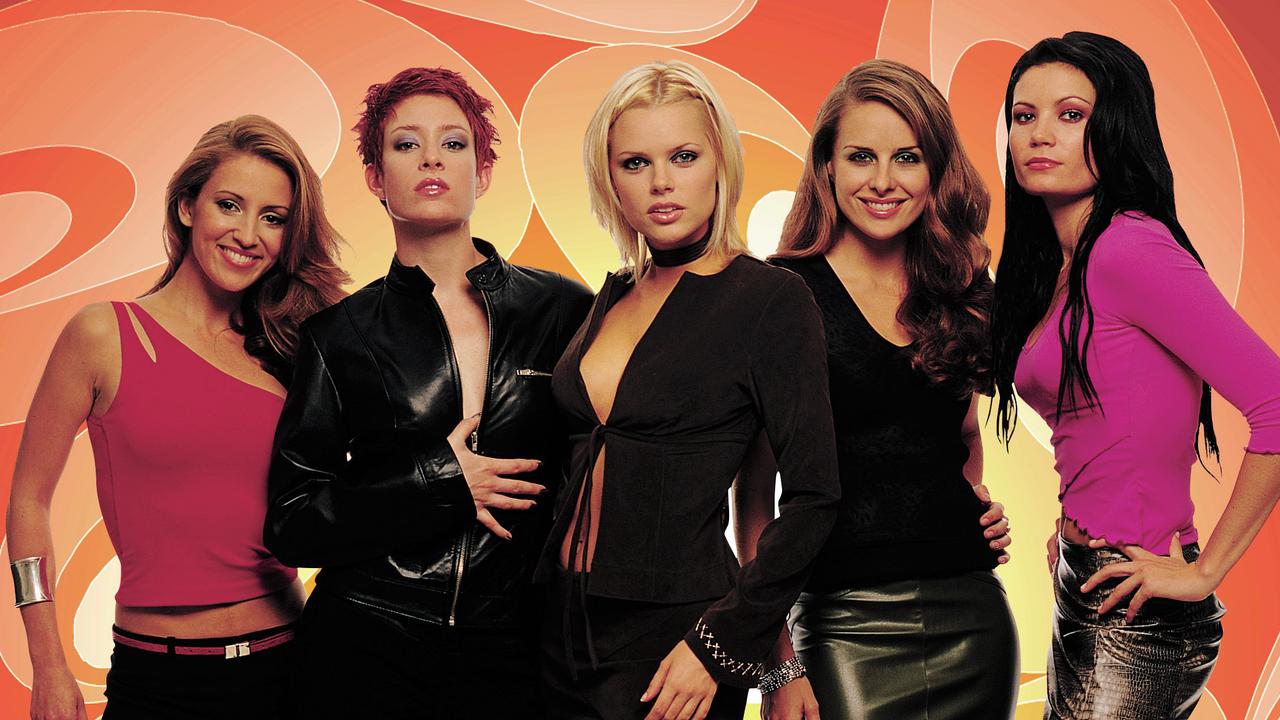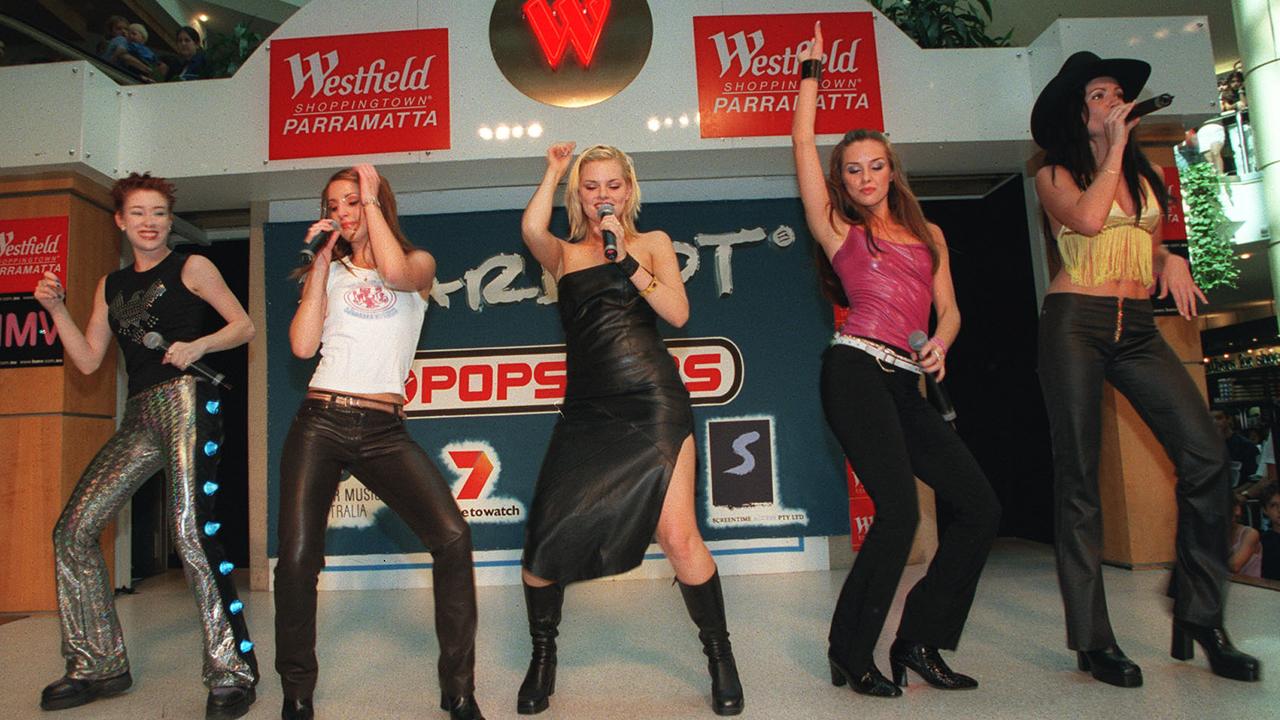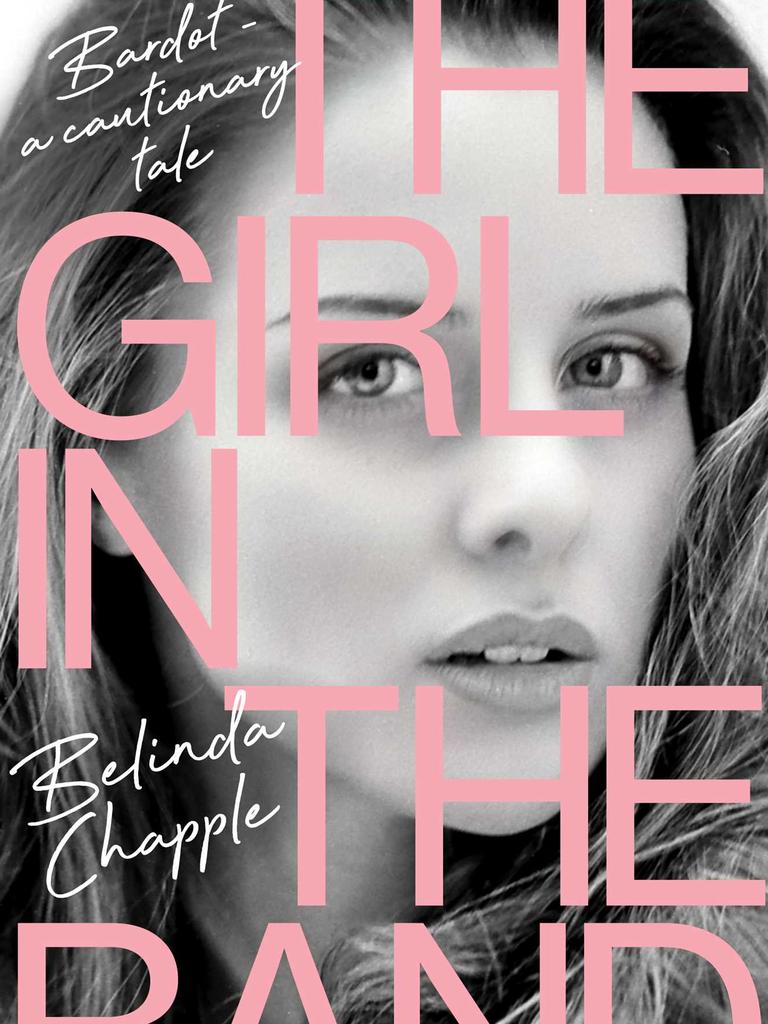Former Bardot member Belinda Chapple dishes on her shocking new tell-all book
One former Bardot member lifts the lid on the brutal reality of life inside the pop group in a new book - including how much they really got paid.
For more than 20 years now, the rapid ascent and mysteriously sudden split of Popstars girl group Bardot has been one of the more puzzling stories in Australian music.
Now, a new book – part memoir, part “cautionary tale” – by one member of the group lifts the lid on what really happened inside the group.
Belinda Chapple’s The Girl in the Band is the ultimate fan service for a pop act who burned bright for two years but left behind a trail of questions: Why was Chantelle Barry really shunted out of Bardot after the five members of the group had been selected? Why did Katie Underwood bail after barely a year in the band? And why did they abruptly split another year later – an ending that left several members of the group visibly distressed during their televised farewell concert?
The answers to all those questions are contained in the book – as well as many more shocking revelations, most of them about the financial exploitation Chapple and bandmates Underwood, Sophie Monk, Sally Polihronas and Tiffani Wood faced in the top-selling group.


Chapple started writing the book only a few years after the band fell apart, but put the project on the shelf time and time again, never feeling quite “brave” enough to share her story. Now she finally feels ready.
“People love real stories, true stories. And I thought, what have I got to lose? Let’s just do it,” she told news.com.au.
Well, not quite. Having mostly stayed out of the public eye since Bardot, Chapple is understandably nervous about the interest some of these never-before-heard stories will generate.
She’s also keen to stress there are no hard feelings towards some people who might come off badly in the book – namely Barry, who was dismissed after stealing from her new bandmates, and Sophie Monk, whose solo career ambitions effectively ended Bardot two years later.
The scene detailing that secret meeting is one of the book’s most shocking: Monk, already signed to a solo deal, sitting on one side of the desk in their manager’s office, while he informed the three other members of the group that Bardot was over and their services were no longer required. The bitter ending created a rift between Chapple and Monk, until then her closest friend in the group, that never mended.

Savvy pop fans would be right in assuming the members of Bardot were not on particularly lucrative contracts. Still, it’s hard to believe their income for that first year in the group: A $35 a day per diem, handed over as cash in an envelope at the end of the week. That’s it.
And how much was the Popstars money-making machine raking in? She heard rumours later that Bardot’s gross profits from that first year – the ad sales from the Popstars TV show, the record sales, all the merch, the gigs and appearance fees – came in at around $27m.
One telling passage in the book comes after the girls had inked yet another lucrative brand endorsement deal, this time with clothing store Bardot. Soon, they realised they wouldn’t be seeing a cent from it – and noted that they’d have been financially better off getting jobs in the Bardot stores, than being in the Bardot pop group.
The group’s massive in-store signing events were another reminder that everyone but them was making a lot of money out of Bardot.

“It hit home to us when we were sitting there signing albums for three hours straight, in every state, with a sea of people,” Chapple said, reminding me that, in those days, every single person in line had paid around $30 for a physical copy of the album. “And we’d look at each other and just go wow, we’re making a lot of money … And we’re not seeing a cent of it. It was tough.”
The album and debut single Poison both quickly went double platinum, with combined sales of almost 300,000 copies – and still, the members of Bardot received their weekly cash-in-hand envelopes with pocket change to live on.
The marked contrast felt embarrassing – and that shame kept them silent, as their friends and peers marvelled at their life-changing transformation into pop stars.

“Fans would say to us, ‘Oh, you guys must be rolling in it now, it must be amazing!’ We didn’t say anything. We didn’t go, ‘No, we’ve got no money.’ We’d just sort of laugh uncomfortably and hope that they didn’t keep talking about,” Chapple recalled.
“It’s surprising that we toed the line so much … but we were young.”
Other disturbing passages in the book show how much these talented young women felt pressured to change their appearance: Chapple shares that two members of the group privately underwent cosmetic surgery during the height of their fame, and that she found herself in the grip of an eating disorder as she obsessively monitored her calories. By the time Bardot launched their second album with the single ASAP in 2001, all four members were noticeably thinner.

Chapple said that they felt constant scrutiny – from their near-daily photo shoots, to the terms of their contract, which forbade them from putting on weight.
“Just to see yourself constantly like that, it creates an incredible amount of pressure. Fame isn’t for everybody. And fame does put on this incredible pressure to look and be a certain way,” she said.
For years after Bardot ended, Chapple felt “shell-shocked” and unable to process what had happened: Where was all the money? Why did it all end just as they were starting to prove their critics wrong? She turned her back on the industry she’d loved since childhood, moving overseas and starting a new life as an interior designer.


But there is a happy ending, of sorts, to the Bardot story. While she and Monk haven’t spoken since Bardot broke up, Chapple has reconnected with the rest of the girls since moving back to Australia last year – and even formed a new musical duo, Ka’bel, with former bandmate Katie Underwood. Their songs so far are very much in the lush disco mode of Bardot’s best single, I Need Somebody. She reaches for her phone mid-chat to play me their upcoming third single; on first impressions, it sounds like their strongest offering yet.
She also serves as executive producer on Paper Dolls, a new Aussie drama coming to Paramount Plus later this year, “following the meteoric rise and fall of a manufactured girl group.” It’s a fictional story, but you’d have to assume Chapple has some real-life experience to draw from on this subject.
And then there’s The Girl In the Band, her cathartic “cautionary tale,” finally aired in public after staying secret for more than two decades. At the end of our chat, Chapple seems lighter, a little less burdened by the past.
“I’ve put all my heart and soul into this book,” she tells me. “I’m almost 50 now. I think it’s important to tell these stories for young people... so they can navigate the world a bit wiser than we did.”
Belinda Chapple’s The Girl In The Band is out now.






